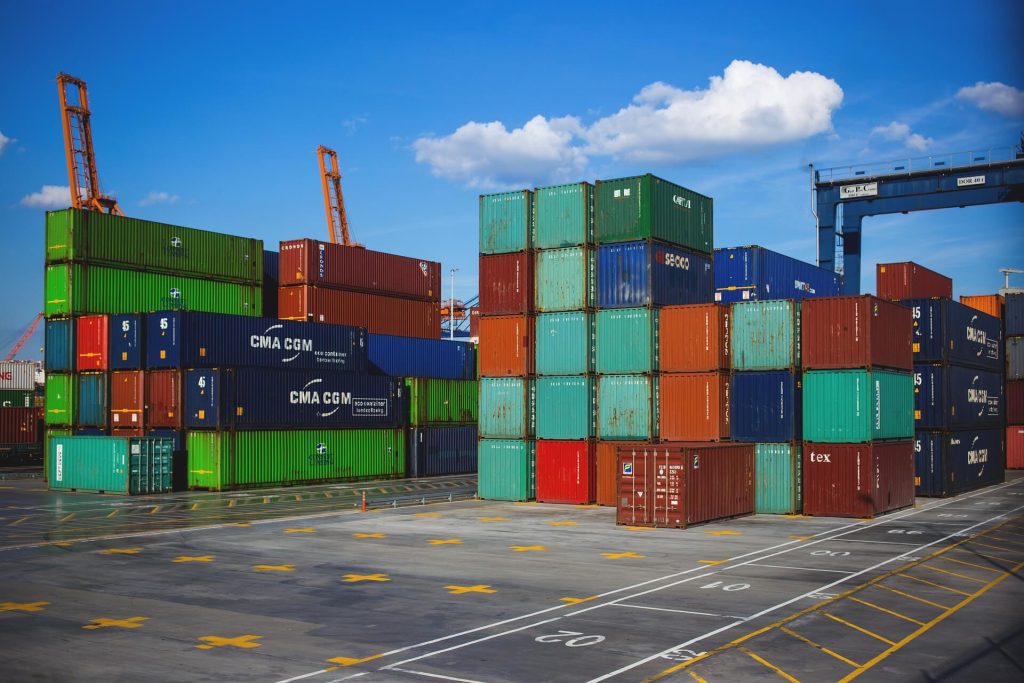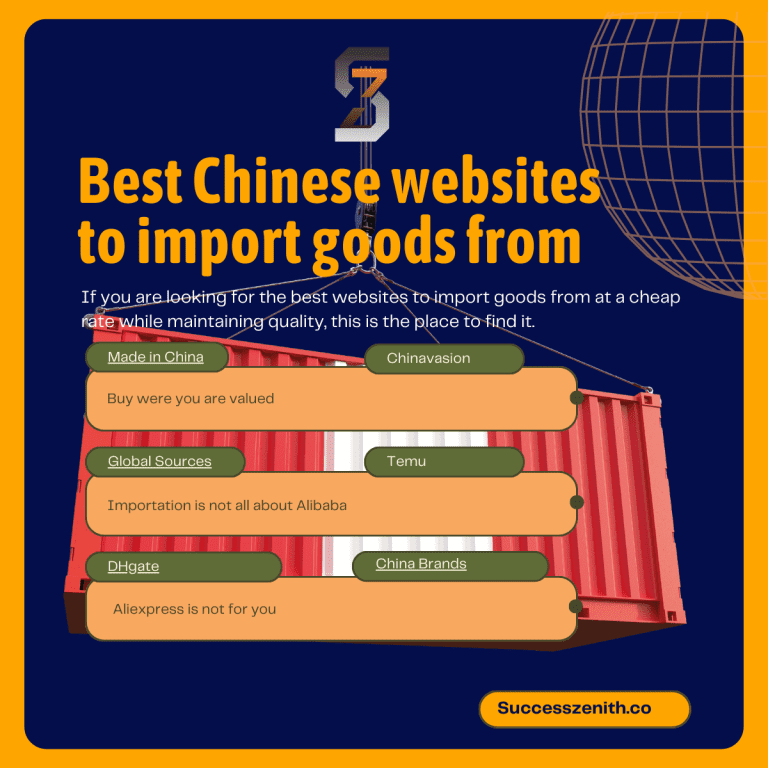Please Follow us on social media >>>>
Ultimate Guide to Finding Reliable Suppliers for Mini-Importation in Africa
You want to know how to find reliable suppliers for mini-importation business?
Then this article covers everything you need to know.
This Ultimate Guide to Finding Reliable Suppliers for Mini-Importation is part of an Advanced Tutorial on Mini-Importation for Both Newbies and Pros. Make sure to check it out.
You may also like this Quick Guide on How To Start Mini-Importation Today, It will get your feet wet on your journey to importing your first goods.
Now let us talk about how to find the best suppliers.
In case you don’t know me. My name is Echez O’Ford, and I am a senior content writer, an entrepreneur, and a digital marketer. I have been in importation for over a decade now. If you need a push on starting your online business today, book a call now.
Echez O’ Ford
Finding the Best Suppliers for Mini-Importation: What to Look For

If you’re interested in starting a mini-importation business in Africa, one of the most important steps is to find reliable suppliers.
Before you start your search, you need to know what to look for in a good supplier.
A good supplier will provide you with quality products at competitive prices and ensure that your orders are shipped and delivered on time.
In this article, I will walk you through the process of finding the best suppliers for your mini-importation.
Will you know a good supplier when you find one? If your answer is no, then find out How to Know a Reliable Supplier for your Importation Business
Research Your Potential Suppliers
The first step in finding a good supplier is to do your research.
There are many ways to find potential suppliers, including searching online marketplaces like
- Alibaba,
- madeinchina.com: This is my favorite for finding good suppliers. They maintain a large directory of suppliers.
- AliExpress,
- DHgate,
- Yollando
- go4world business: You can search for suppliers based on category.
- attend trade shows and exhibitions, and
- reach out to industry associations and chambers of commerce.
Once you have a list of potential suppliers, you’ll need to evaluate them based on their website, reputation, and reviews.
What To Look for when evaluating supplier websites:
When evaluating a supplier’s website, look for information about the company’s history, products, and services.
A professional website with clear and detailed information about the company is a good sign. Next, check the supplier’s reputation by searching for their name and reviews online. Do a simple Google search and you will find what you want.
Look for reviews from other buyers from your region to get an idea of how reliable the supplier is.
You will notice that some suppliers may not have a website of their own, but will list their wares in a larger marketplace.
In that case, look at their product page, and pay special attention to how professional the page looks. are they a jack of all trades? Do they specialize in a single product? These and a few others are some parameters to guide you.
Next is to know how reliable your supplier is. Your customers want to patronize you but they will not forgive you for delayed delivery. So the success of your importation business depends on how reliable your supplier is.
Assess and Verify Supplier Reliability
I cannot commit to doing business with any supplier if I am not sure of how reliable they are. Once you’ve narrowed down your list of potential suppliers, you’ll need to assess their reliability.
There are several factors to consider when assessing reliability, including product quality, shipping times, and communication.
Check if the supplier has the required certifications for the products they sell. They should be able to provide samples of their products for you to verify the quality before placing a bulk order.
A supplier who prides himself on selling branded products should willingly show evidence of authenticity. And this is your power of attorney. This is the assurance you need to be sure you are buying what you bargained for.
Supplier Communication Level is Key To Your Success.
Communication is key when it comes to mini-importation. Ensure that the supplier can speak English fluently and has good customer service.
This can be tested by initiating a conversation or request through email or chat. They should be able to respond promptly and address any concerns you may have.
If for some reason, your supplier does not speak and understand English, there should be a way to translate the conversations. A handy resource is Google Translate. When done sorting out the language barrier, move on to the negotiation side of things.
How to Negotiate with Suppliers in Importation
Once you’ve identified a reliable supplier, the next step is to negotiate with them. Negotiating with suppliers can help you get the best prices and terms for your orders.
Always be polite, professional, and honest during negotiations. But what should you be discussing with your supplier? Here, make sure to discuss the following terms:
- Pricing: Find out the supplier’s pricing structure and try to negotiate a lower price for your orders.
- Minimum Order Quantity (MOQ): This is the minimum amount of products you can order from a supplier. Try to negotiate a lower MOQ to reduce your costs.
- Payment Terms: Find out what payment methods the supplier accepts and whether they offer any discounts for early payments.
Did you notice the terms, MOQ, and PT? Everything is explained in this article here: Importation Business Terms and Acronyms.
I have noticed that new ones in the importation business shy away from negotiating. Do not push this important responsibility into the background.
You will be amazed at how much these suppliers are willing to dance to your tunes. So go ahead and ask them questions.
Let them know you are in for business and ask for discounts if that is what you want. Sometimes, you can even negotiate and buy quantities different from their regular standard. It is time to build some relationships.
Focus on Building long-term relationships with suppliers
Building a long-term relationship with your suppliers is crucial for the success of your mini-importation business.
Maintain good communication with them, provide regular feedback, and treat them with respect. This way, you’ll be able to establish a strong partnership with your suppliers, and they will be more willing to work with you on better terms and offer you priority attention. I have noticed that the Chinese like it when you refer to them as friends. So use the word, do whatever will create a good relationship for both parties.
Let me show you some of the best resources to find good suppliers. I have mentioned a few of them above, but here are some more.
Best Resources To Find a Good Supplier
- Online Marketplaces Online marketplaces like Alibaba, AliExpress, and DHgate are great places to find potential suppliers. These platforms offer a wide range of products from various suppliers, making it easy to compare prices and quality. You can use filters to search for suppliers based on your specific requirements, such as location, product category, and order quantity.
- Trade shows and exhibitions Attending trade shows and exhibitions is a great way to meet suppliers face-to-face and see their products up close. Many trade shows and exhibitions are held annually in different African countries, and they attract suppliers from all over the world. This is a great opportunity to network with other business owners and learn about new products and trends.
- Industry Associations and Chambers of Commerce Industry associations and chambers of commerce are organizations that represent specific industries or groups of businesses. They often have directories of member businesses, including suppliers, that you can access. These organizations also offer networking events and training programs that can help you connect with suppliers and learn about the latest trends in your industry.
- Supplier Directories Supplier directories are online databases of suppliers that you can search through based on your specific requirements. Some examples of supplier directories include ThomasNet, GlobalSources, and Kompass. These directories provide detailed information about suppliers, including their product lines, contact information, and certifications.
- Social Media Social media platforms like LinkedIn and Facebook can also be used to find potential suppliers. You can join groups related to your industry or product category and post requests for supplier recommendations. You can also use social media to research potential suppliers and check their reputation and reviews.
In conclusion, finding reliable suppliers for your mini-importation business in Africa requires research, evaluation, negotiation, and relationship-building. By tapping into the resources outlined above, you can identify potential suppliers, assess their reliability, negotiate the best terms, and build long-term relationships with them. With the right suppliers in place, you can grow your mini-importation business and take advantage of the opportunities in Africa’s rapidly expanding markets.
Make Good Use of Supplier Directories
Supplier directories are online databases that list suppliers and manufacturers from around the world. They are useful tools for businesses that are looking to source products from different regions or countries. Here’s how to find and use supplier directories for your mini-importation business:
- Research and choose a supplier directory. There are many supplier directories available, each with different features and specialties. Research and choose a directory that suits your business needs. Some popular directories include Alibaba, ThomasNet, GlobalSources, and Kompass.
- Sign up and create a profile. Once you have chosen a supplier directory, sign up and create a profile. This will allow you to access the directory’s full range of features and connect with potential suppliers. Make sure to fill out your profile completely and include information about your business and the products you’re looking to source.
- Search for suppliers. Use the directory’s search function to find potential suppliers. You can narrow down your search by location, product category, minimum order quantity, and other criteria. Once you’ve found a few potential suppliers, take the time to review their profiles, product catalogs, and customer reviews.
- Contact and evaluate suppliers. Contact the suppliers you’re interested in and ask for more information about their products and pricing. Be clear about your requirements, and ask for samples and certifications where necessary. Evaluate the suppliers based on their responsiveness, pricing, quality, and reliability.
- Negotiate and finalize the deal. Once you’ve identified a supplier that meets your requirements, negotiate the terms of the deal, including the price, delivery time, and payment method. Make sure to have a clear agreement in writing and confirm all details before placing your order.
- Maintain a relationship with your suppliers. Building a strong relationship with your suppliers is crucial to the success of your mini-importation business. Stay in touch with them, provide feedback on their products, and be open to constructive criticism. This will help you maintain a good working relationship and ensure a steady supply of high-quality products.
What have we covered?
Supplier directories are valuable tools for businesses that are looking to source products from around the world.
By following the steps outlined above, you can find and evaluate potential suppliers, negotiate the best terms, and build long-term relationships with them.
This will help you grow your mini-importation business and take advantage of the opportunities in Africa’s expanding markets.




[…] And by providing them with solutions, I have seen what works and what does not. There is a complete Guide to Finding Reliable Suppliers for Mini-Importation in Africa. Feel free to add that to your […]